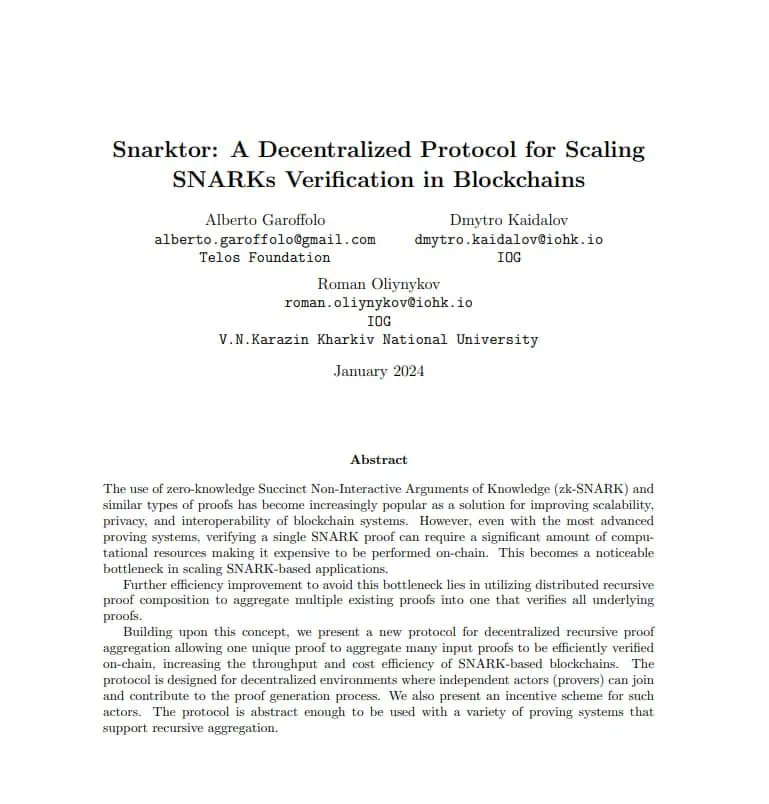
Input Output Global and researchers at the Telos Foundation have introduced a new scalability protocol, called SNARKtor, that uses distributed recursive proofs to increase the throughput and speed of blockchains.
The new protocol, which is being worked on by Cardano network developers Input Output Global (IOG) and researchers from the Telos Foundation, who support the development of the Telos network, based on the DPoS protocol and compatible with the Ethereum Virtual Machine, is in the research and development phase.
Still, its builders they argue that this new protocol will allow Increase the performance and profitability of blockchains based on SNARKs, in a way that is unprecedented in the crypto industry.
While zk-SNARK-based networks have become one of the leading scalability solutions today, they still face limitations that prevent true scaling of blockchain applications.
Through Snarktor, IOG and the Telos Foundation are seeking to deliver a viable solution to streamline the verification of ZK proofs, unlocking the true scalability of blockchains, enabling a wide range of different applications and use cases that preserve privacy, ensure security, and optimize interoperability across networks in the Web3 ecosystem.
SNARKtor: Distributed recursive testing to ensure scalability
SNARKtor uses distributed recursive testing to group or gather several existing tests into a single test, which is able to verify all underlying proofs efficiently and reliably.
According to its developers, decentralized and distributed recursive proofs represent an efficient solution to optimize the verification of zero-knowledge proofs and speed up transactions, allowing to substantially reduce the cost of verification and improve scalability in a blockchain, without compromising security.

The protocol developed by the Telos Foundation and IOG can be implemented as a decentralized system for recursive proof aggregation on any existing blockchain network. In addition to this, the developers highlighted the possibility of integrating this system with Artificial Intelligence models, which could unlock new use cases and applications in the ecosystem.
On the other hand, the developers emphasized that SNARKtor is built in a decentralized environment, allowing other developers and blockchain builders to participate in its ongoing research and development.
Demand and regulatory compliance
The integration of zero-knowledge proofs is essential, both to increase the capacity of blockchains to adapt to the growing demand for use, and to meet the needs of regulatory compliance in the crypto industry, without affecting the privacy or security of users.
According to technical document published, SNARKtor can address these needs by taking a recursive approach to zero-knowledge proofs.
SNARKtor will be able to aggregate multiple proofs, for different transactions with different purposes, into a single proof, allowing them to be verified faster, more efficiently, and at a lower cost. This will unlock new use cases for the blockchain, leading to further advancements for developers of the technology and widespread adoption globally.
Continue reading: Smart contracts are deployed on Stellar, with the launch of Soroban



